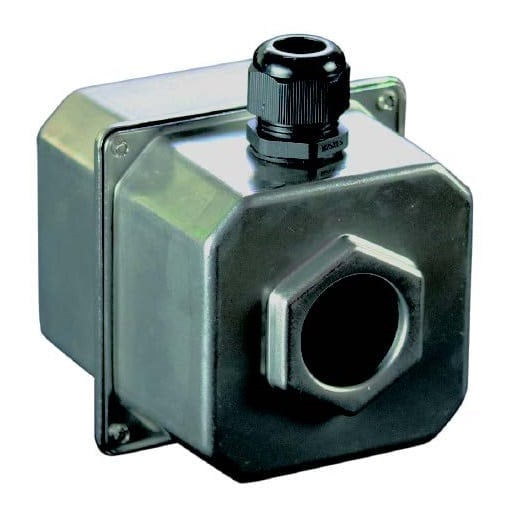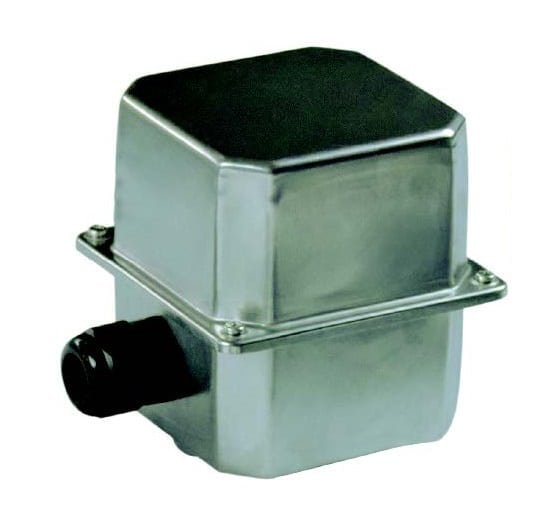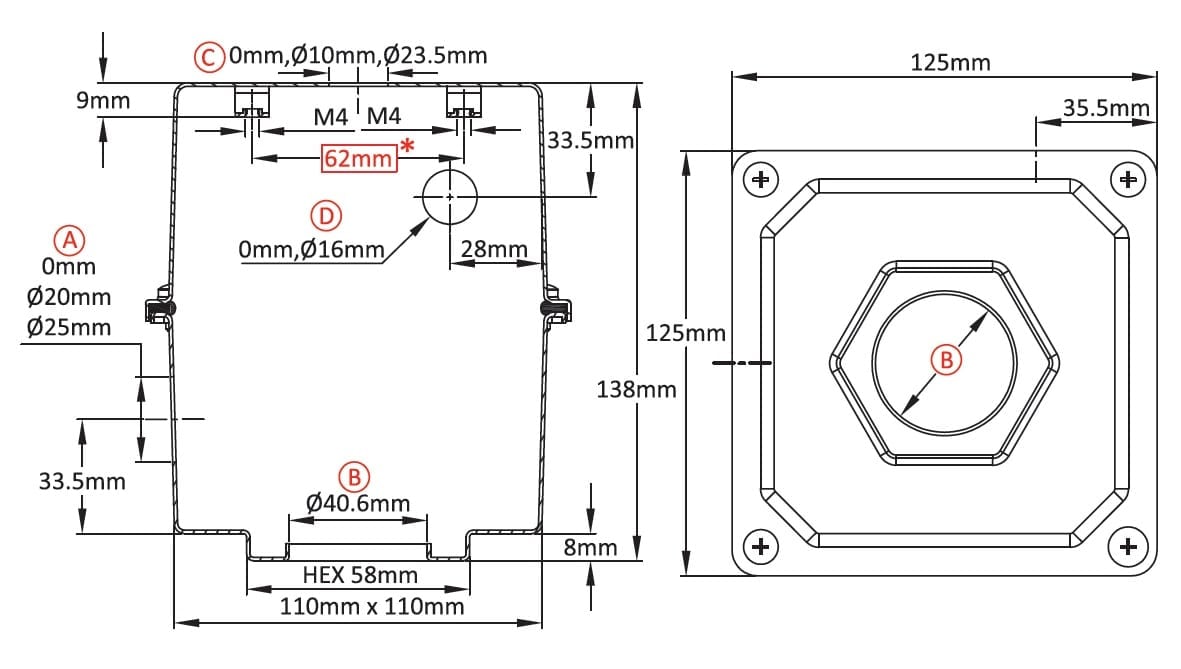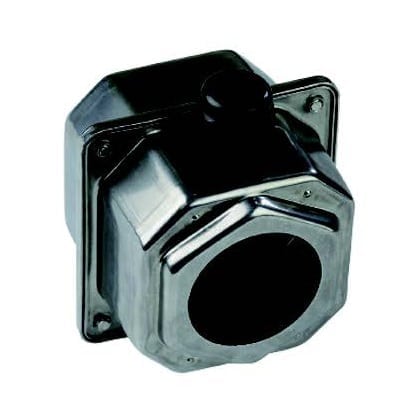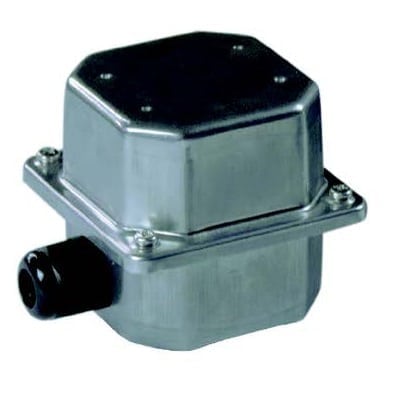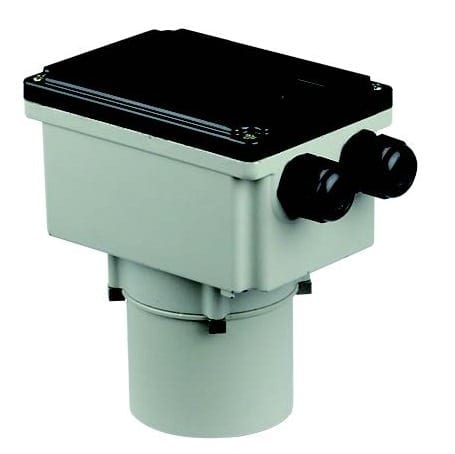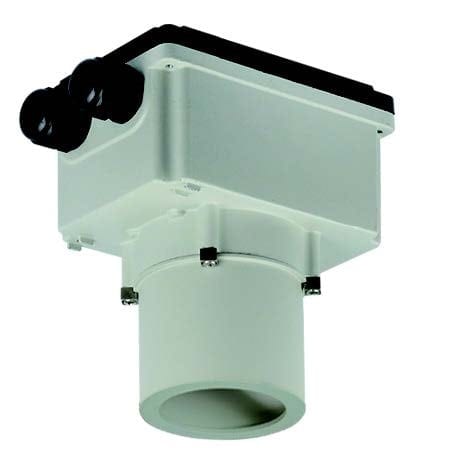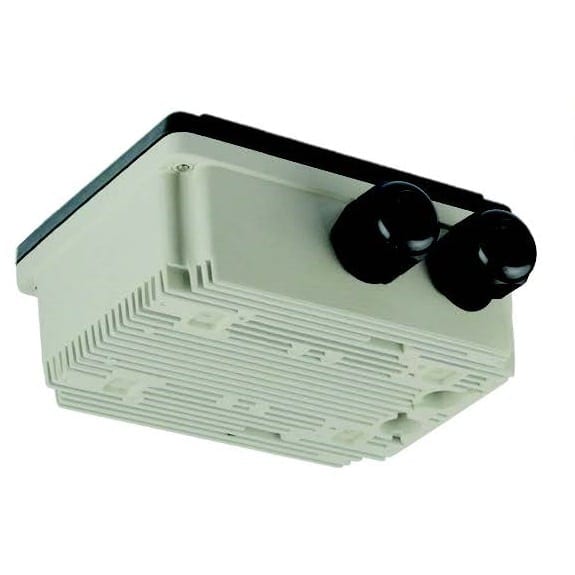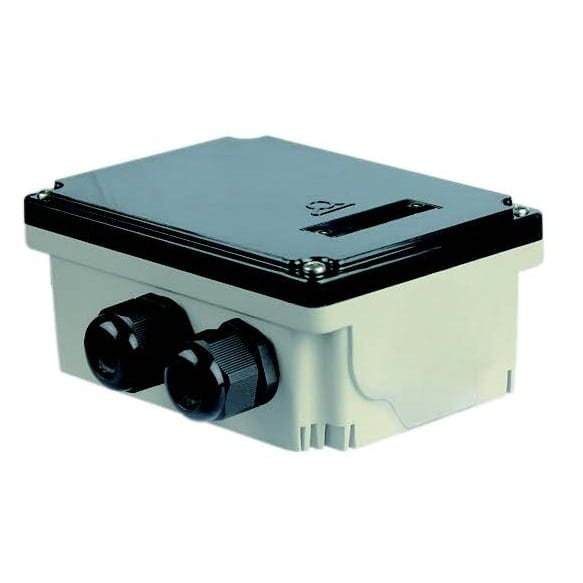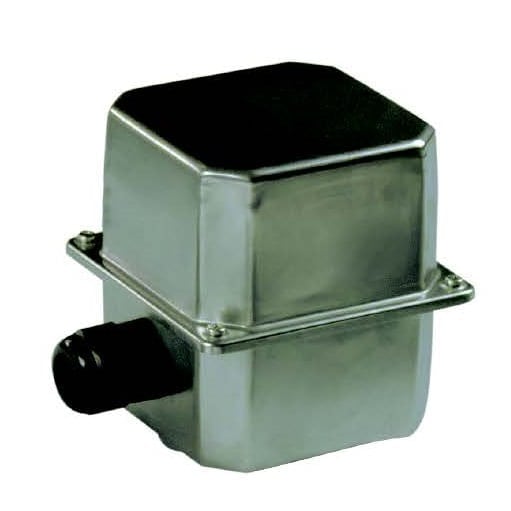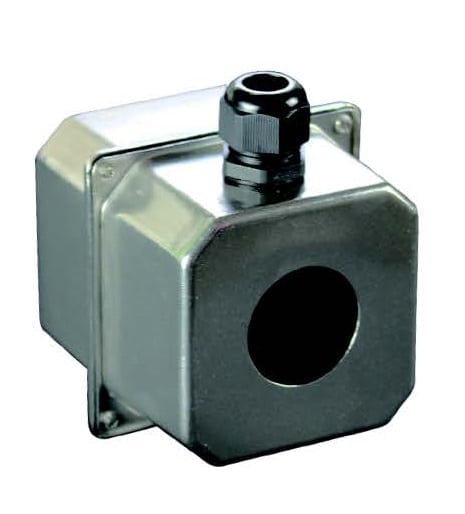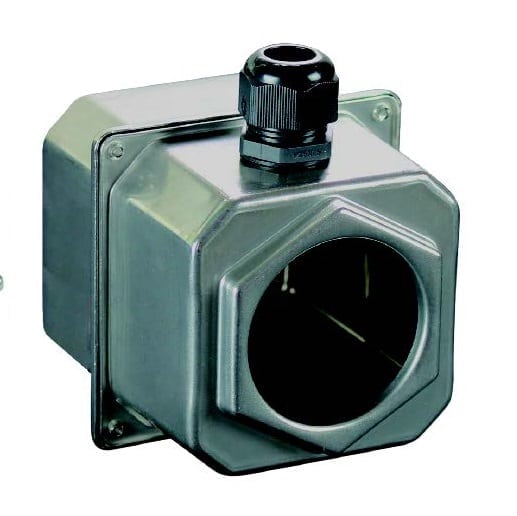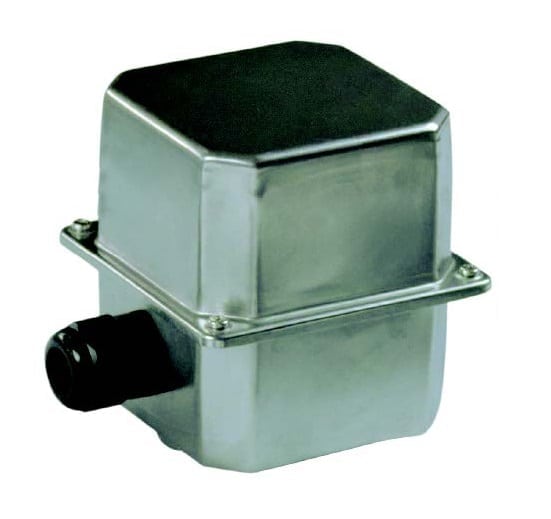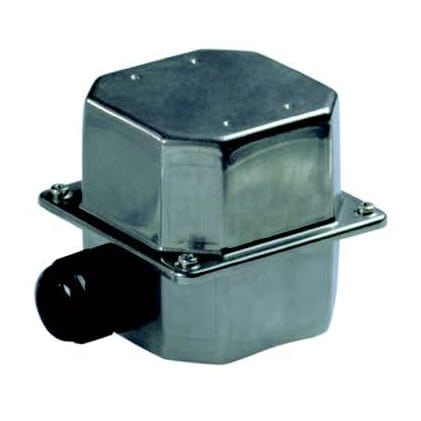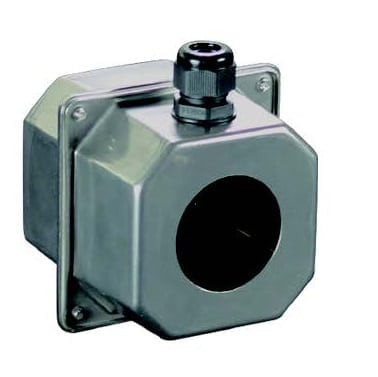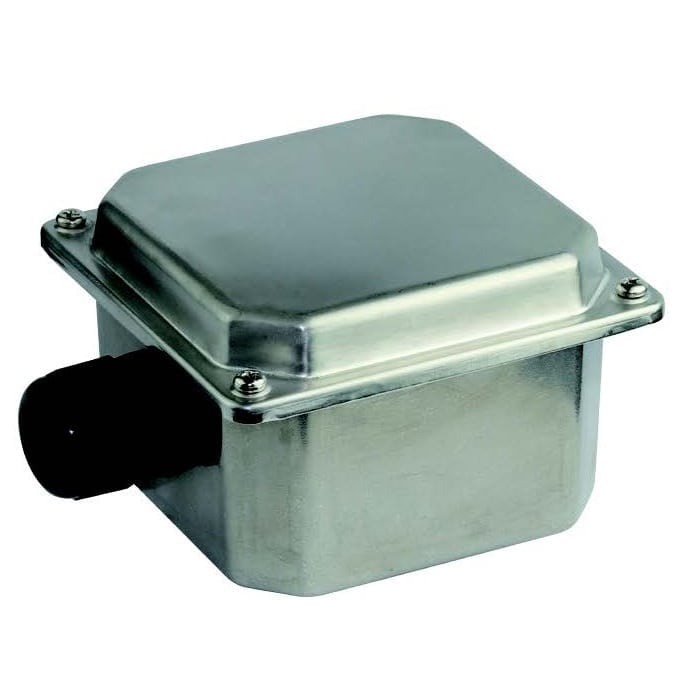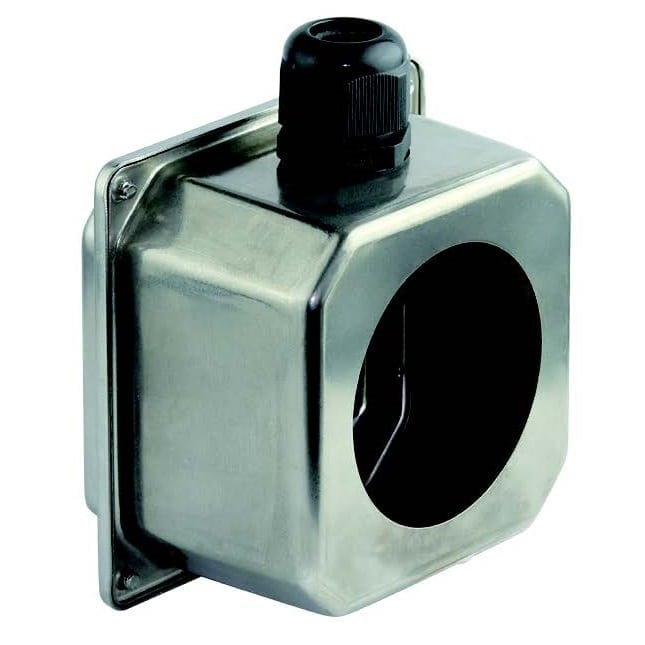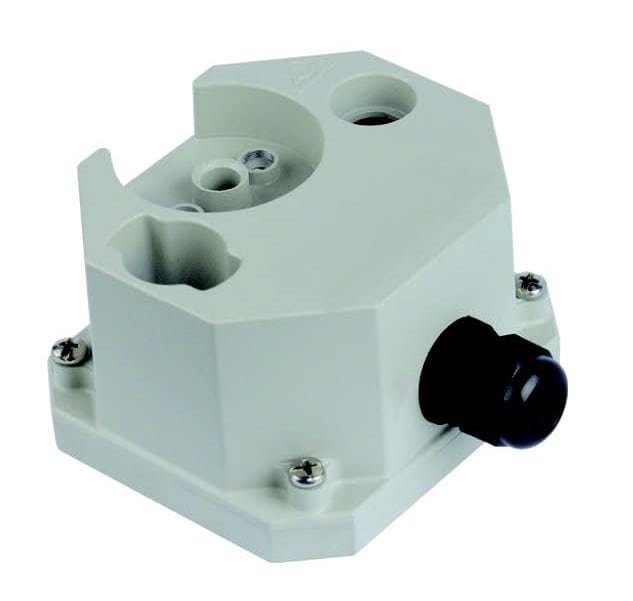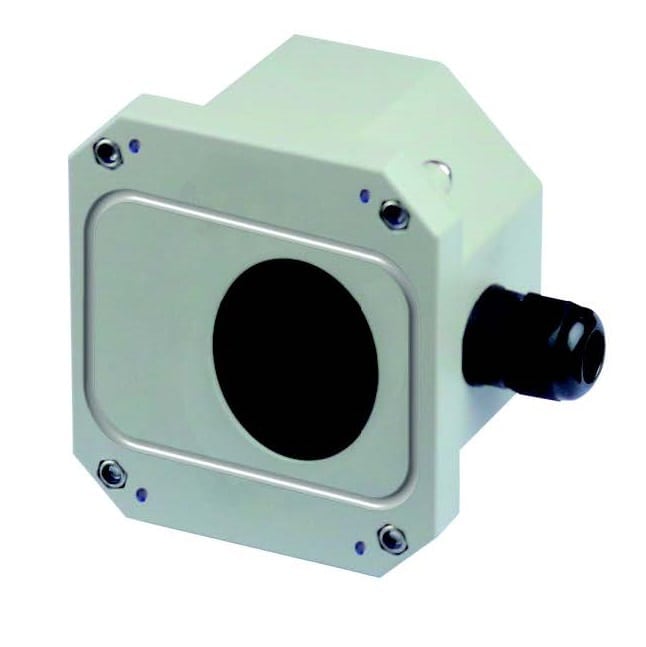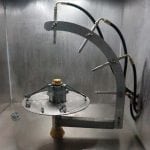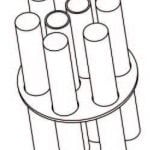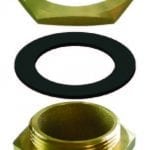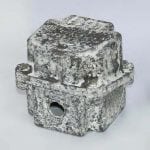Stainless steel big size enclosure for immersion heater with built-in hexagon, Y3S8
– Bottom side with stamped 58mm on flat hexagon, for 1 ″1/4, 1 ″1/2 or M45 TIG welded fittings
– Hole for one M25 cable gland, or holes for one M25 and two M16
– Optional hole for pilot light
– Can receive one or two power relays
| Dimensions | 125 × 125 × 138 mm |
|---|---|
| Ingress protection | |
| Mechanical protection | |
| Housing raw material | |
| Volume (cm³) |
Red dimensions inside rectangular frames on drawings are used for accessories assembly.
Main features
Big size enclosure for immersion heater with built-in hexagon
– Bottom side with stamped 58mm on flat hexagon, for 1 ″1/4, 1 ″1/2 or M45 TIG welded fittings
– Hole for one M25 cable gland, or holes for one M25 and two M16
– Optional hole for pilot light
– Can receive one or two power relays
Size: 125 x 125 x 138 mm
Volume: 1525 cm³
Material: Stainless steel deep drawn cover and bottom.
Ingress protection: IP69K
Mechanical impact resistance: IK7
Screws: Stainless Steel.
Cover gasket: Molded Silicone.
Basic references
| A (mm) | B (mm) | C (mm) | D (mm) | 304 | 316 |
| 0 | 40.6 | 0 | 0 | Y3S84060000G1008 | Y3S84060000G1009 |
| 0 | 40.6 | 0 | 16 | Y3S84060116G1008 | Y3S84060116G1009 |
| 0 | 40.6 | 10 | 0 | Y3S8406A000G1008 | Y3S8406A000G1009 |
| 0 | 40.6 | 10 | 16 | Y3S8406A116G1008 | Y3S8406A116G1009 |
| 0 | 40.6 | 23.5 | 0 | Y3S8406D000G1008 | Y3S8406D000G1009 |
| 0 | 40.6 | 23.5 | 16 | Y3S8406D116G1008 | Y3S8406D116G1009 |
| 20 | 40.6 | 0 | 0 | Y3S84060120G1008 | Y3S84060120G1009 |
| 20 | 40.6 | 0 | 16 | Y3S840602C0G1008 | Y3S840602C0G1009 |
| 20 | 40.6 | 10 | 0 | Y3S8406A120G1008 | Y3S8406A120G1009 |
| 20 | 40.6 | 10 | 16 | Y3S8406A2C0G1008 | Y3S8406A2C0G1009 |
| 20 | 40.6 | 23.5 | 0 | Y3S8406D120G1008 | Y3S8406D120G1009 |
| 20 | 40.6 | 23.5 | 16 | Y3S8406D2C0G1008 | Y3S8406D2C0G1009 |
| 25 | 40.6 | 0 | 0 | Y3S84060125G1008 | Y3S84060125G1009 |
| 25 | 40.6 | 0 | 16 | Y3S840602C5G1008 | Y3S840602C5G1009 |
| 25 | 40.6 | 10 | 0 | Y3S8406A125G1008 | Y3S8406A125G1009 |
| 25 | 40.6 | 10 | 16 | Y3S8406A2C5G1008 | Y3S8406A2C5G1009 |
| 25 | 40.6 | 23.5 | 0 | Y3S8406D125G1008 | Y3S8406D125G1009 |
| 25 | 40.6 | 23.5 | 16 | Y3S8406D2C5G1008 | Y3S8406D2C5G1009 |
Cable gland not included in these reference, consult us if you want them.
Accessories
|
Internal bracket for inside adjustment thermostat |
Silicone cap for thermostat adjustment hole |
PA66, 6 way connection block |
Brass fittings |
Massive stainless steel fitting, for custom hole drilling |
Deep drawn stainless steel fitting |
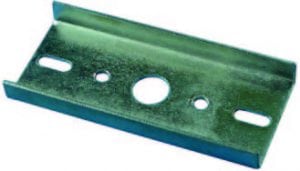 |
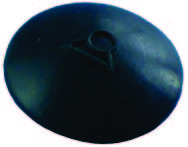 |
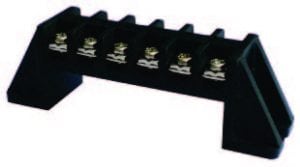 |
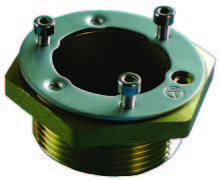 |
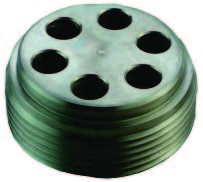 |
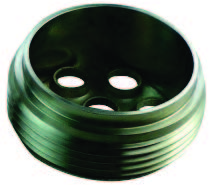 |
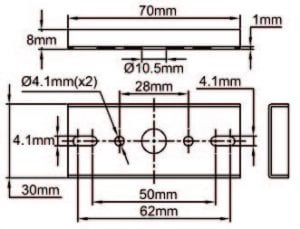 |
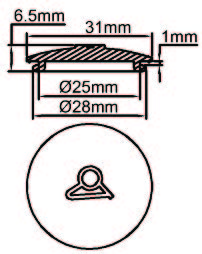 |
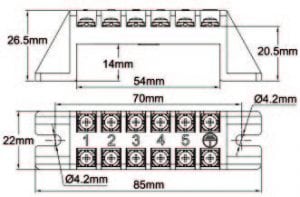 |
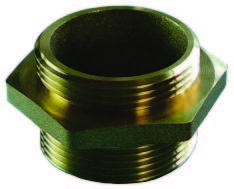 |
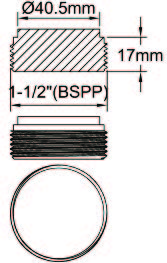 |
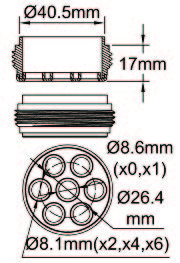 |
|
9BBAE1000ELH008A |
9BBJO1000004078A |
BE6E6000000MP000 |
For full range and references of fittings, nuts and gaskets: immersion heater accessories. | Available without holes or drilled upon request. Ask for references | Available in 2, 3, 4, 5, 6, 7 holes and M45 or 1″1/2 thread. Ask for references |
To access download documents, please Login/Register. Datasheet, drawings (.dwg), 3D models (.stp) and other documents are available.
Downloads
Related products
Technical informations associated to this product
-
Electrical protection classes
The housings are designed to protect electrical equipment located inside. This protection must be considered in the electrical and environmental angles.) -
Guide for immersion heater selection
Figures provided in this section are results of tests made in our laboratory. Charts were smoothened by computer, and are given for specified power and for information only. -
Overview of immersion heater fittings
In Europe there are two common types of threads used on immersion heaters fittings. Threads according ISO 228-1, also said BSPP or cylindrical gas thread (G). 2mm pitch metric thread according ISO965-1, little used, which was the subject of an attempt to replace the ISO228-1 in the middle of the 20th -
Surface engineering of metallic housing
Surface condition is an essential parameter of resistance against atmospheric corrosion. Both aluminum and stainless steel naturally form a protective oxide layer on the surface. Corrosion occurs only when this protective oxide layer is crossed or destroyed. Microcavities of a rough surface allow atmospheric pollutants to initiate local oxidative conditions. This is particularly critical when these pollutants have a different galvanic potential. For example, iron or iron oxide dust can create favourable conditions for perforating corrosion in stainless steel, as well as zinc in the case of aluminum. It is important that the surface of the metal, if exposed to the weather, be smooth so that these pollutants slide and escape naturally.

